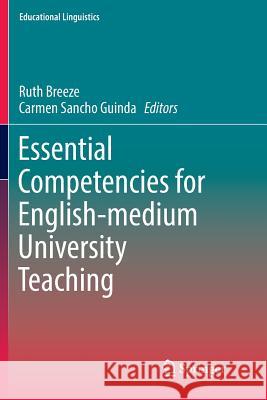Essential Competencies for English-Medium University Teaching » książka
topmenu
Essential Competencies for English-Medium University Teaching
ISBN-13: 9783319822266 / Angielski / Miękka / 2018 / 307 str.
Kategorie:
Kategorie BISAC:
Wydawca:
Springer
Seria wydawnicza:
Język:
Angielski
ISBN-13:
9783319822266
Rok wydania:
2018
Wydanie:
Softcover Repri
Ilość stron:
307
Waga:
0.45 kg
Wymiary:
23.39 x 15.6 x 1.75
Oprawa:
Miękka
Wolumenów:
01
Dodatkowe informacje:
Wydanie ilustrowane











